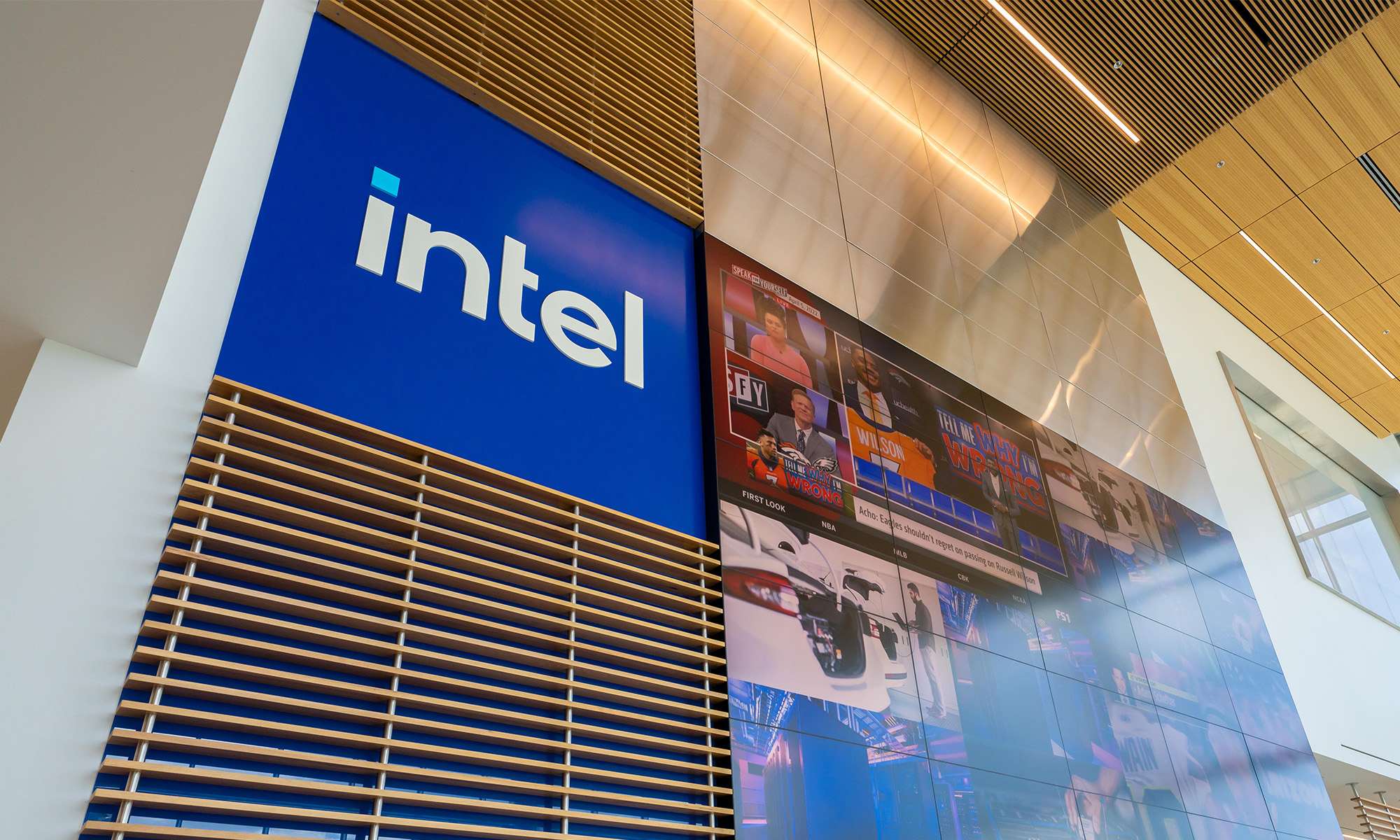Google (GOOG 2.23%) and Microsoft (MSFT +1.52%) are far from allies -- for months now, Microsoft has been running an aggressive anti-Google advertising campaign discouraging people from using Google's products.
But ironically, Google -- or at least, its Android operating system -- could be the one to save Microsoft's ailing Windows 8. A wave of new devices, and tech from Intel (INTC 1.79%), could keep Microsoft's operating system viable in a world that's increasingly moving on from PCs.
Intel's new effort
Last week at the Consumer Electronics Show, chipmaker Intel announced that it was working with PC manufacturers to produce hybrid devices: laptops, desktops, tablets and 2-in-1s that ran both Google's Android and Microsoft's Windows operating system simultaneously. Spearheading the effort was Asus' new Transformer Book Duet, a tablet with a keyboard docking station that can switch from Windows to Android with the push of a button.
If these devices prove popular, it should benefit Intel. Although the company has scored some wins with tablet manufacturers -- notably Samsung -- it remains a token player in the overall mobile chip space. If a would-be buyer settles on one of these hybrid devices, instead of a competing Android tablet, Intel may wind up with a sale that would have otherwise gone to a more mobile-dominant competitor.
Should Microsoft shareholders cheer these new hybrids?
But it's a trickier question for Microsoft. On the one hand, every single hybrid purchased is another Windows license sale, sending revenue to Redmond and keeping its Office business alive. But on the other hand, it's an obvious sign that Microsoft's mobile strategy is a complete failure. Windows 8 is, at its core, already a hybrid operating system, intended to work well on both traditional PCs and tablets. If Windows 8 had been a success, I wouldn't be writing this article -- these devices would have no reason to exist.
Still, they're necessary: Windows-powered tablets remain in the vast minority, while Android tablets have seen tremendous market share gains in recent quarters. To some extent, that could be due to the availability of cheaper Android-powered tablets -- but a bigger factor may be Windows 8's decisive lack of touch-optimized, mobile apps.
Longboard Asset Management argued in October that the rise of these hybrid devices was good for Microsoft, as it allowed Windows to stay relevant in a post-PC world. Instead of buying pure Android tablets, buyers would purchase these hybrids instead -- the growth of Google's Android would pull Microsoft's Windows business with it.
Google could win some converts
That could happen, but only if these devices sell well. While it's possible that they could, I'm skeptical that they'll ever become anything more than a niche offering -- as with all hybrids, pricing and form-factor will be issues.
Asus' Transformer Book Duet starts at $599 -- that's at the high-end of the average PC's selling price, and more expensive than either a similarly equipped Android-powered tablet or Windows-powered laptop. Asus' device is also much thicker and heavier than most tablets and even many light-weight laptops.
If these devices do sell, they will likely cannibalize pure Windows devices, not Android tablets. A consumer who simply wanted the $230 Google Nexus 7 or $350 Samsung Galaxy Tab isn't going to suddenly pay twice as much to get Microsoft's operating system.
If Android hybrids eventually account for a sizable chunk of Windows sales, it could have the effect of luring more Windows users to Android, rather than the other way around. Someone who buys the Transformer Book Duet instead of a Windows-only laptop may eventually find that they can do without Windows, in time switching over to Google's operating system entirely (perhaps buying a new Android-powered desktop in place of a Windows machine).
Android expands its reach
While these new hybrid devices could benefit Intel, they shouldn't be viewed as a positive for Microsoft.
Rather than view these devices as a way to keep Microsoft's operating system relevant, they should instead be seen as an expansion of Google's Android into the market for traditional PCs. Although I wouldn't expect these new hybrid devices to ever sell in meaningful numbers, if they do, their sales will cannibalize the sales of other Windows devices -- not Android tablets. That only opens the door for Google's mobile operating system to expand further, breaking into the traditional PC market at the expense of Microsoft's Windows.





